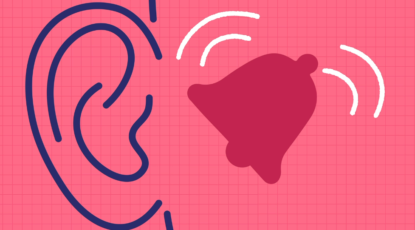Research News
-
New U-M studies challenge widely held beliefs, published research on women in the workplace
Justin Frake is interested in cause-and-effect relationships in real-world data and the hidden dynamics that shape workplace behavior and eq uality — or inequality, as the case might be. His curiosity has led to research whose findings challenge some popular beliefs related to women in the workforce.
-
U-M-led Apple Hearing Study reveals prevalence of tinnitus
About 78% of participants in the Apple Hearing Study, conducted by researchers at U-M, have experienced tinnitus — the perception of sound that others do not hear. The study focused on the demographics and characteristics of people with tinnitus to inform future research on potential treatments.
-
Count your blessings: It often happens when others help, not self-achieved
If you focus on overcoming life’s barriers rather than the blessings that make life easier, you’re not alone. A new University of Michigan study indicated that people aren’t always good at noticing the advantages they enjoy compared to the disadvantages they overcame.
-
Most local officials support rooftop solar, a majority opposes nuclear power
Michigan’s local leaders overwhelmingly support adding rooftop solar infrastructure in their communities, while a majority strongly oppose developing nuclear power. According to the Michigan Public Policy Survey, 86% of local government leader respondents either strongly or somewhat support adding rooftop solar panels.
-
AI chips could get a sense of time
Timekeeping in the brain is done with neurons that relax at different rates after receiving a signal; now memristors—hardware analogues of neurons—can do that too. Artificial neural networks may soon be able to process time-dependent information, such as audio and video data, more efficiently.
-
Hey Siri, are we cool?
AI is developing rapidly, and there’s no consensus on what that means. Some think it will lead to human extinction. Others point out that it could help address medicine shortages or plan vacations. So what do humans do with all this? LSA faculty and alumni experts weigh in on what to make of AI’s changing landscape.
-
Managing screen time by making phones slightly more annoying to use
The best way to help smartphone users manage their screen time may be to make phones progressively more annoying to use, according to new U-M research. Delaying a phone’s swiping and tapping functions forces users to think harder, making it easier for them to consider whether to keep scrolling.
-
Researchers create human aortic aneurysm model
Using human cells in laboratory rats, Michigan Medicine researchers have developed a functional model of thoracic aortic aneurysm, creating new opportunities for understanding disease development and treatment. No treatments currently exist for the condition, which is a weakening and bulging at the body’s largest blood vessel in the chest.
-
Rolling the dice on addiction
College sports deliver some of the most thrilling moments in athletics. But it’s not all fun and games for gambling addicts whose fortunes rise and fall with each contest. Now, as online betting becomes more popular and accessible, college students are increasingly vulnerable to getting hooked, warn U-M experts.










